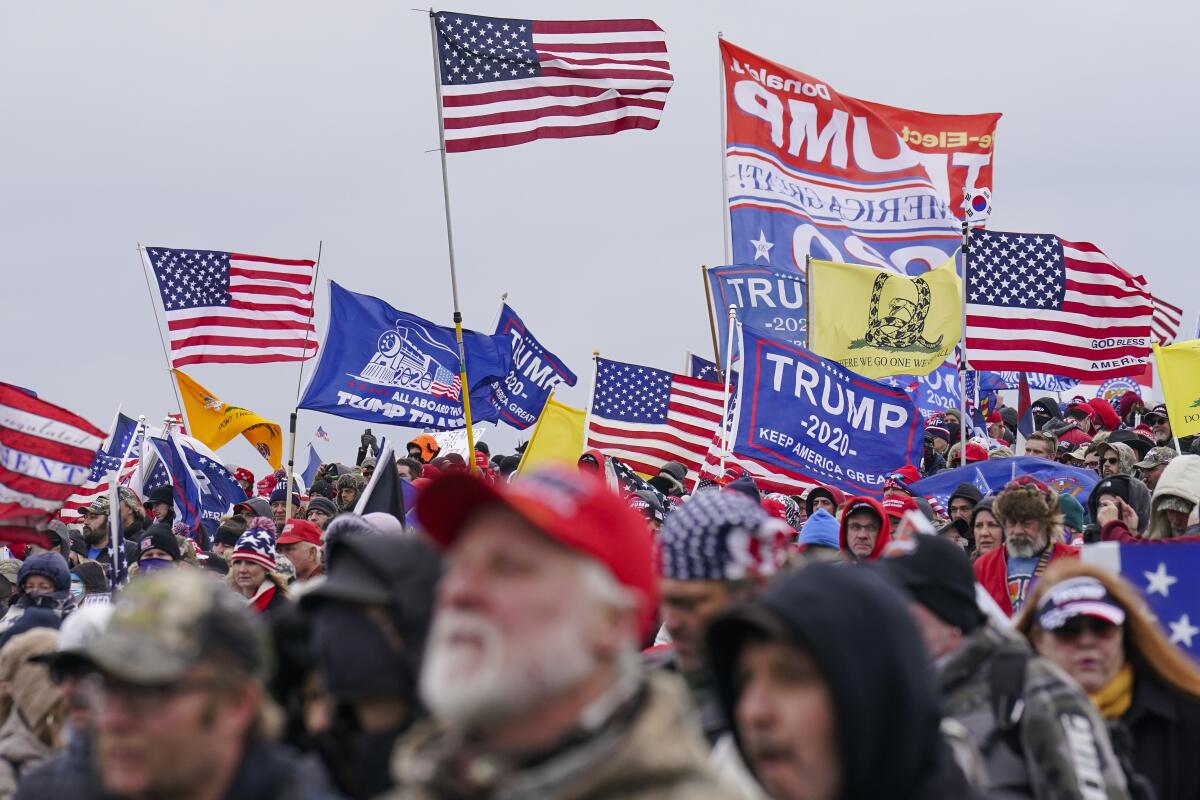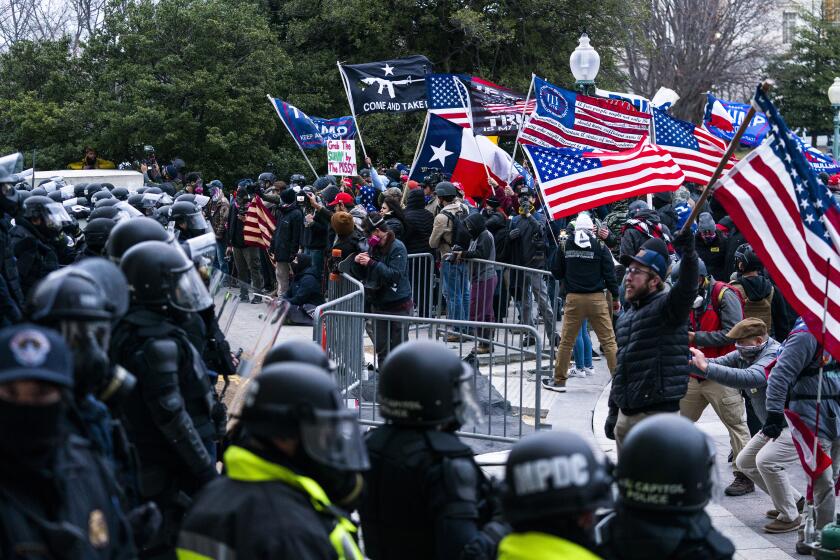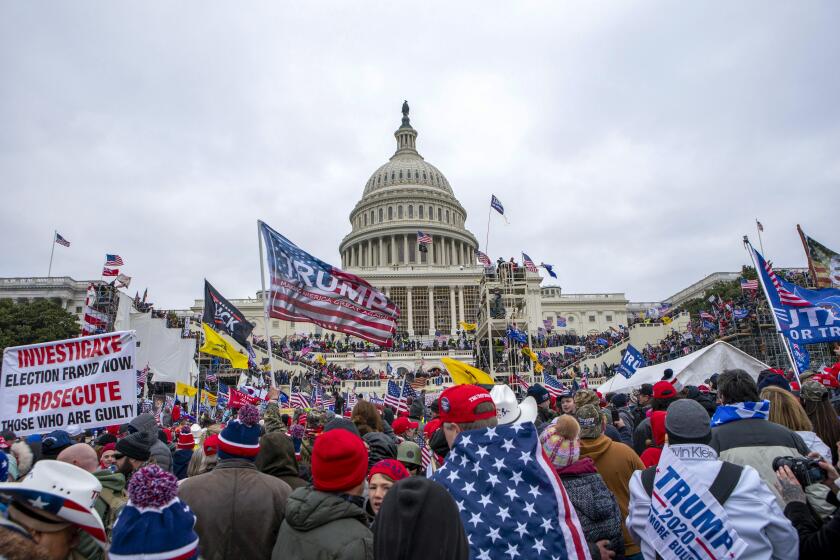Column: An appeals court crushed Trump’s immunity claim. He could face trial before the election

- Share via
The D.C. Circuit Court of Appeals’ denial of Donald Trump’s immunity claim Tuesday was comprehensive and emphatic — so much so that it could put his election interference trial back on track to proceed ahead of the November election.
The opinion is per curiam, meaning all three judges on the panel joined it and none was singled out as the author. In this case, the form is purposeful: It communicates a unanimity of purpose and a sense of import. As the opinion says, “The question of whether a former President enjoys absolute immunity from federal criminal liability is one of first impression.”
It may also be why the ruling took longer than many expected: Every word had to be carefully crafted to the satisfaction of each judge.
In considering Colorado’s removal of the ex-president from the ballot under the 14th Amendment, the justices face a pile of heated but contradictory arguments.
The heart of the opinion is its forceful rejection of Trump’s appeal on the ground that his outlandish position would violate basic separation-of-powers principles. “At bottom,” the court notes memorably, “former President Trump’s stance would collapse our system of separated powers by placing the President beyond the reach of all three Branches.”
The court also anchors the opinion in individual rights — namely, the right to vote — on the basis that Trump’s arguments suggest “that a President has unbounded authority to commit crimes that would neutralize the most fundamental check on executive power — the recognition and implementation of election results.” The judges wrote that they couldn’t endorse Trump’s “apparent contention that the Executive has carte blanche to violate the rights of individual citizens to vote and to have their votes counted.”
This twin foundation in constitutional structure and individual rights puts the opinion on the most stable possible footing.
The opinion also contends with a friend-of-the-court brief arguing that the appellate court had no power to hear the appeal before trial based on the Supreme Court’s 1989 decision Midland Asphalt Corp. vs. United States. It methodically reaches the sensible conclusion, albeit somewhat at odds with the language of that case, that the doctrine does not apply here. The judges reason that although the case seems to apply on its own terms, the more important point is that immunity is a right not to be tried in the first place.
Special counsel Jack Smith’s investigation yielded an indictment of the former president for his role in events surrounding the Jan. 6, 2021, Capitol riot.
Nearly as important as the court’s answer to the unprecedented questions at hand is its treatment of the mandate — the official statement returning the case to the trial court and U.S. District Judge Tanya Chutkan. Typically such a mandate issues at least 21 days after the decision, giving the loser time to seek an en banc reconsideration of the panel’s decision by the full circuit court. Here, however, the panel pointedly gave Trump only six days.
That means that if Trump can’t secure a stay of the ruling by Monday, the case will return to the trial court and resume its normal course. So as a practical matter, he doesn’t have time to seek an en banc rehearing by the D.C. Circuit, where his prospects would be remote in any event. Ensuring that there was no appetite for such a reconsideration among the other judges may have accounted for some of the time the panel took to rule.
Trump will therefore have to petition the Supreme Court for a stay. He is nearly certain to do so and couple it with a request that the Supreme Court hear the case. Trump has to hope for four justices to vote to hear the case and a fifth to stay the mandate; he needs both to prevent the case from resuming under Chutkan. It could go to trial by May if the ruling is not stayed.
If the Supreme Court takes the case and stays the ruling, even on a probably expedited schedule, it could take until the end of June to issue a ruling. That would mean that the earliest possible trial would be in the heat of the presidential campaign, which poses a whole host of problems that might persuade Chutkan or a higher court to apply the brakes.
With the Supreme Court already scheduled to hear arguments this week on whether Trump should be disqualified from the ballot, it’s not difficult to imagine the justices passing on this one, especially in light of the lower court’s comprehensive and persuasive opinion. On the other hand, it’s not hard to envision the justices deciding to enter the fray and provide a definitive resolution for a case of this magnitude. Their decision could be pivotal given the crucial question of whether the trial reaches a verdict before the campaign does.
Harry Litman is the host of the “Talking Feds” podcast. @harrylitman
More to Read
A cure for the common opinion
Get thought-provoking perspectives with our weekly newsletter.
You may occasionally receive promotional content from the Los Angeles Times.













